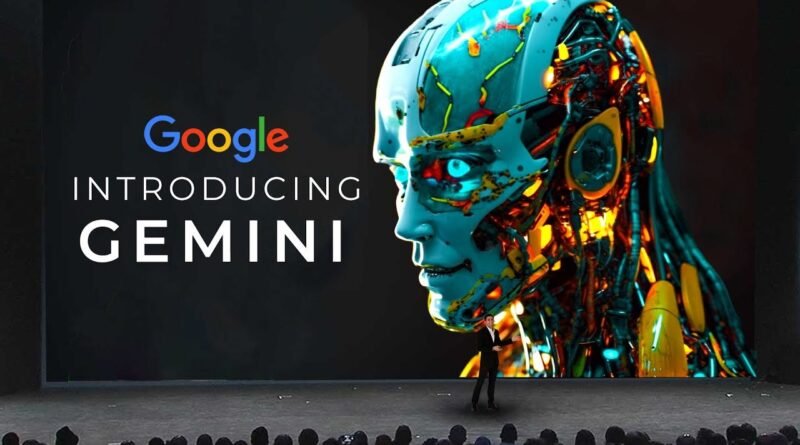Google Gemini is here… but is it better than ChatGPT 4?
What does Google Gemini entail, and what is the rationale behind offering it in three different sizes? Additionally, how might Gemini influence Google search? We aim to elucidate these aspects for better understanding.
Introducing Google Gemini, the latest advanced multimodal general AI model from the tech giant, acclaimed as its most robust offering to date. Now accessible to users globally via Bard, various developer platforms, and the newly unveiled Google Pixel 8 Pro devices, this versatile AI model is available in three distinct sizes: the forthcoming Ultra, Pro, and Nano. Widely regarded as Google’s response to the leading GenAI, ChatGPT, Gemini signals a significant stride in the realm of artificial intelligence.
So, what is Google Gemini?
According to Demis Hassabis, CEO and Co-Founder of Google DeepMind, Gemini represents a significant step toward realizing the vision of “AI that feels less like a sophisticated software and more like a practical and intuitive expert helper or assistant.” This collaborative creation emerged from the collective efforts of various teams within Google. Notably, Gemini stands out as a multimodal AI, demonstrating its versatility by seamlessly processing information across text, code, audio, image, and video. This distinguishes Gemini from ChatGPT, which currently lacks native functionality for video processing.
Furthermore, the potency of Gemini surpasses that of existing models, exemplified by Google’s assertion that Gemini Ultra outperforms current state-of-the-art results on 30 out of 32 widely-utilized academic benchmarks in large language model (LLM) research and development. Notably, Gemini Ultra achieves a groundbreaking milestone by becoming the inaugural model to surpass human experts in massive multitask language understanding (MMLU). This comprehensive evaluation encompasses a diverse range of 57 subjects, including math, physics, history, law, medicine, and ethics, thereby assessing both world knowledge and problem-solving capabilities.
Also, Gemini can “understand, explain and generate high-quality code in the world’s most popular programming languages, like Python, Java, C++ and Go”, the company claims.
Why does Gemini come in three sizes?
Gemini will be offered in various sizes to accommodate different requirements. The largest and most advanced model, Gemini Ultra, is tailored for handling highly intricate tasks. As part of its ongoing trust and safety verification process, this model is currently accessible to a limited audience comprising select customers, developers, partners, and safety and responsibility experts, facilitating early experimentation and feedback. The broader rollout to developers and enterprise customers is scheduled for early next year.
Gemini Pro excels in efficiently handling a diverse array of tasks and is currently accessible to regular users worldwide through Bard. On the Bard platform, users can experience a specially optimized version of Gemini Pro in English, designed for enhanced capabilities in reasoning, planning, understanding, and more advanced functions. Furthermore, developers and enterprise customers can leverage Gemini Pro through the Gemini API, accessible on Google AI Studio or Google Cloud Vertex AI.
Gemini Nano will manage on-device tasks and is already available on Pixel 8 Pro, powering new features like Summarise in the Recorder app and Smart Reply via Gboard, starting with WhatsApp. From December 13, Android developers will also be able to build with Gemini Nano via AICore, a new system capability available in Android 14, starting on Pixel 8 Pro devices.
Will Gemini also impact Google search?
Google has announced plans to extend the integration of Gemini into additional products and services, including Search, Ads, Chrome, and Duet AI. The company has initiated experimental implementations of Gemini in the Search domain, specifically enhancing the Search Generative Experience (SGE) to deliver faster results for users. Notably, there has been a notable 40% reduction in latency in English language searches in the U.S., accompanied by overall improvements in quality.
So, is Gemini better than ChatGPT 4?
Currently, it’s challenging to make a definitive comparison, but Gemini appears to exhibit greater flexibility than GPT-4. Notably, Gemini’s capacity to seamlessly handle video and operate offline on devices provides a distinct advantage. Additionally, the accessibility factor comes into play, with Gemini being freely available for use, in contrast to ChatGPT-4, which is exclusively offered to paid users.




